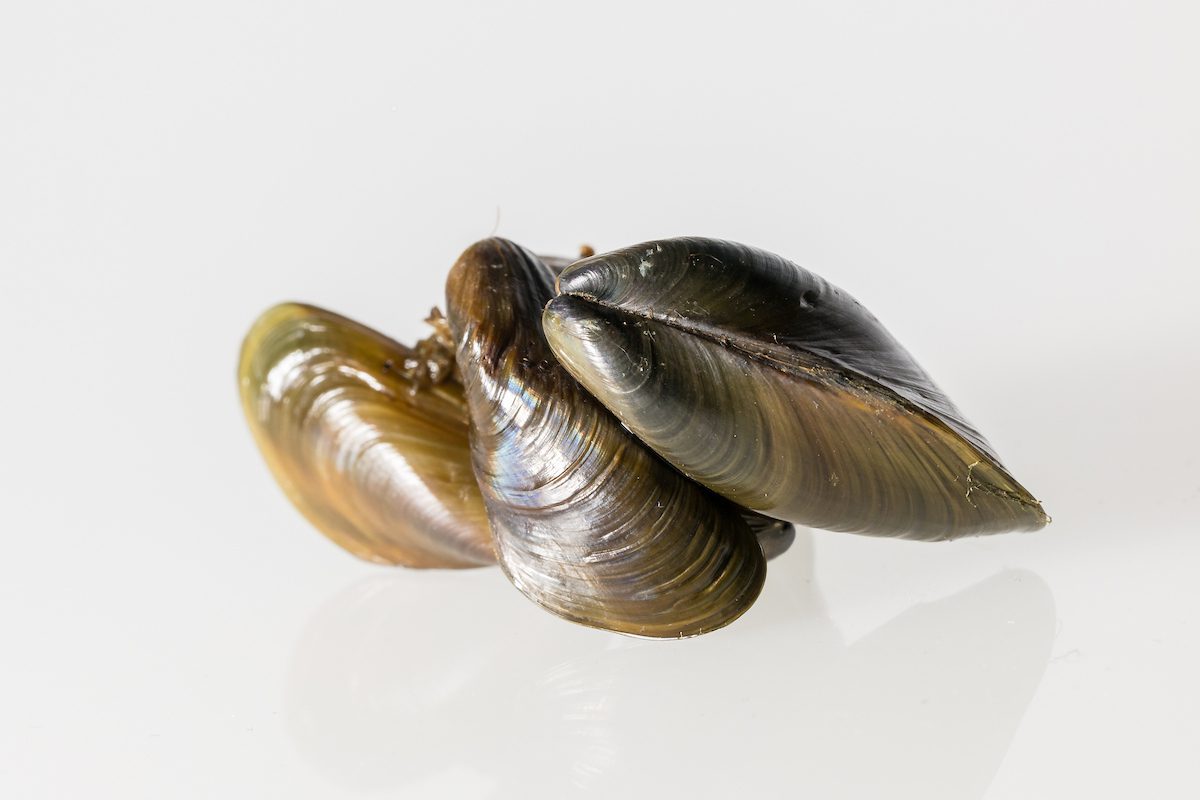- Golden mussels confirmed in Silverwood and Pyramid lakes, the furthest south they’ve been seen in the State Water Project.
- New boating rules at Silverwood require draining and inspections on exit, not entry.
- Lake Perris may face risk due to water transfers; monitoring is underway.
Wednesday, September 24, 2025 — This month California’s Department of Water Resources (DWR), California Department of Fish and Wildlife, and California State Parks announced that the invasive golden mussel has been detected in two Southern California reservoirs: Silverwood Lake in San Bernardino County and Pyramid Lake in Los Angeles County. These are now the southernmost State Water Project (SWP) reservoirs known to harbor this species.
in two Southern California reservoirs: Silverwood Lake in San Bernardino County and Pyramid Lake in Los Angeles County. These are now the southernmost State Water Project (SWP) reservoirs known to harbor this species.
The discovery was made via routine testing by DWR. Pyramid Lake had already been subject to exit inspections because of an earlier infestation of a related invasive mussel (the quagga) discovered in 2016.
Why This Matters: Biology and Infrastructure Risks.
The golden mussel, native to China and Southeast Asia, was first detected in the Sacramento-San Joaquin Delta and O’Neill Forebay in October 2024. Since then, it has spread southward through the water system.
This species reproduces quickly and can attach to boat hulls, water intake pipes, and other submerged surfaces. It can clog infrastructure, reduce water delivery efficiency, and displace native aquatic species. There is currently no established, effective method to remove golden mussels once they infest a waterway, making containment and prevention the primary tools.
New Boating Protocols at Silverwood Lake.
Because Silverwood Lake is now confirmed infested, the rules for boats there have changed:
-
No inspections on arrival. Since the lake already contains golden mussels, inspecting for their presence upon entry is no longer required.
-
Exit inspections with drain plug removal. Boats leaving the lake must have drain plugs pulled to prevent lake water – which may carry microscopic larvae (veligers) – from remaining in the vessel.
-
“Clean, drain, and dry” recommended. Boaters are strongly encouraged to clean, drain, and dry their boats thoroughly after use. Vessels that cannot be fully drained, such as those with ballast tanks, should follow decontamination guidelines of any new water body they enter.
These steps are intended to reduce the chance of the mussel spreading to other, currently uninfested waterways.
What’s at Stake for Lake Perris.
Lake Perris State Recreation Area has not yet tested positive for golden mussels. However, because millions of gallons of water are transferred daily from Silverwood Lake into Lake Perris, managers say the risk of spread is significant.
Currently, Lake Perris continues to inspect incoming vessels. If golden mussels appear there, it may shift to exit inspections and adopt the same containment protocols as Silverwood.
State Water Project Response & Research Efforts.
To protect State Water Project operations and infrastructure, DWR is working with partners to expand protections at pumping plants, hydroelectric facilities, and delivery systems while still maintaining capacity to deliver water to about 27 million Californians and farmland.
Efforts underway include:
-
Research into understanding golden mussel biology and possible suppression techniques.
-
Designing physical and operational measures to protect critical water infrastructure from infestation.
-
Strengthened coordination with state and local agencies to stop further spread.
Image: The invasive golden mussel recently detected in lakes and reservoirs in California. Photo from the Department of Water Resources .
.
FAQ
Q: How was the golden mussel first detected in these lakes?
A: DWR found the species during regular water sampling routines.
Q: Is there a cure to remove golden mussels from a lake once they’re present?
A: No. At present, there is no effective method for eradicating golden mussels once they infest a water body.
Q: Do boaters have to undergo inspections when leaving Silverwood?
A: Yes. Exit inspections with drain plug removal are now mandatory when exiting Silverwood Lake. Entry inspections are no longer required.
Q: Why is Lake Perris at risk?
A: Because water is transferred daily from Silverwood to Perris, any larvae present in Silverwood water could travel into Perris.
Q: How can people report possible sightings of golden mussels or learn more?
A: The Department of Fish and Wildlife maintains a golden mussel reporting line at 866-440-9530 and an email address at invasives@wildlife.ca.gov.


